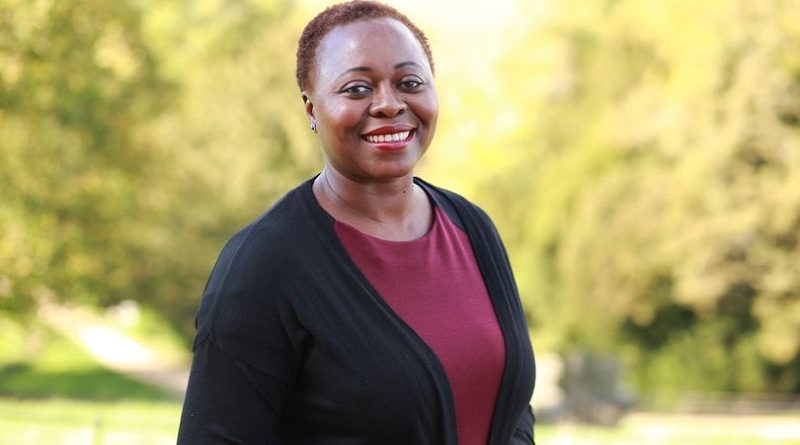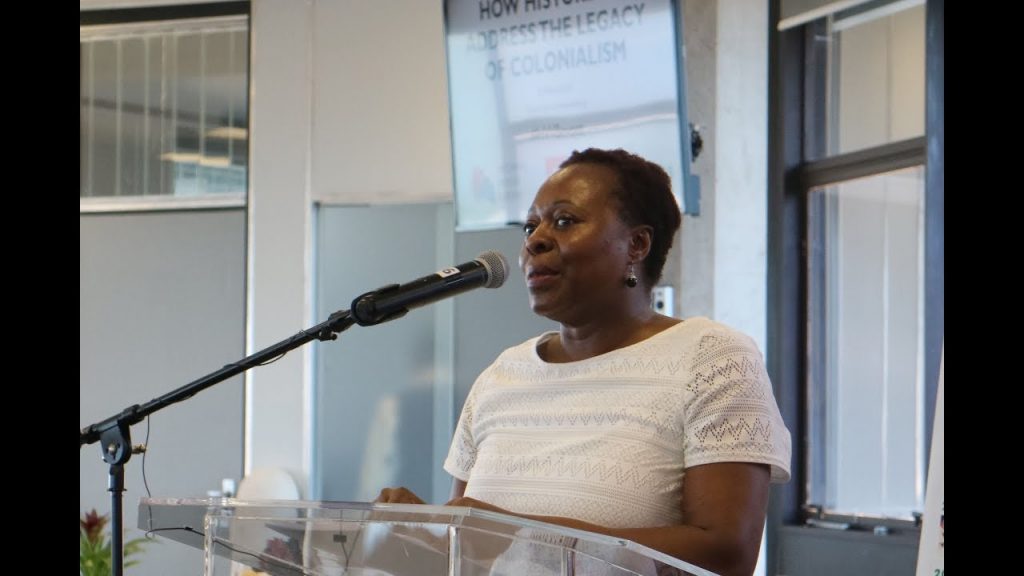Cameroon-born academic Dr Olivette Otele became the first black woman professor of history in the UK, at Bath Spa University. She specialises in collective memory and geopolitics, particularly as related to the colonial histories of Britain and France.

It is hard to believe that a place as “advanced” as the United Kingdom has never had a female black history professor but Dr. Olivette Otele is proof of this ceiling that many did not know existed. Dr. Otele, whose particular area of knowledge is colonial and post-colonial history, has been awarded a personal Chair position in the history department, in recognition of her high levels of achievement within the field.
Speaking to BlackHistory.com about the lack of representation in the field, she said, “Britain suffers from a lack of black teachers and lecturers of history in schools and in higher education. History is a very popular subject in primary and secondary school and there is a sizeable number of self-taught and trained historians of African descent in Britain. What are cruelly lacking are opportunities to share the skills in schools as teachers, in higher education as academics and in other public bodies. Teaching history is perceived in many communities as a ‘private hunting preserve’, especially in higher education.”
With a PhD in history from the University of the Sorbonne in France, her current research is focused on transnational history, in particular the links between history, collective memory and geopolitics in relation to British and French colonial pasts. Her doctoral area of specialisation was European colonial and post-colonial history, examining questions relative to the transatlantic slave trade, slave societies, identities and post-colonial societies in the Atlantic world.
Her forthcoming book, Afro-Europeans: A Short History, will be the first academic text to dive deep into the long history of people of African descent in Europe.
“I wanted to address the question of ‘otherness’ and the fear that stems from the fallacious notion that the majority community’s identity and legacies are under threat. One of the many ways to address that issue is to promote stories of communities’ collaborations. These stories are also crucial for children of multiple identities, as well as for people from the majority group. “
Dr. Otele is also the author of numerous articles and a contributor to many books, such as Identity Politics and Minorities in the English-Speaking World and in France: Rhetoric and Reality (2011) and Histoire de l’esclavage britannique: des origines de la traite transatlantique aux premises de la colonisation (2008). In addition, she is the recipient of UK and EU research grants for her work on the history and memory of people of African descent. She is conversant in French, English, German, Spanish, Portuguese, Ewondo, Eton and Boulou.
The historian further attests that her field has taught her “kindness: we exist because many before us have survived hardship and have chosen to share their space, resources and stories. And humility as a scholar: we very rarely discover anything but reinterpret and add to palimpsests.”

